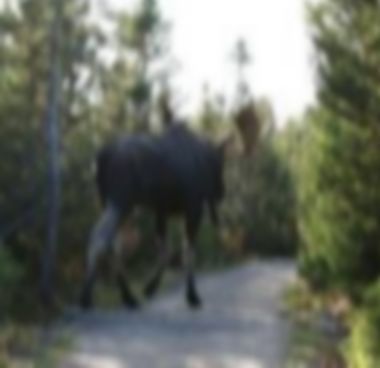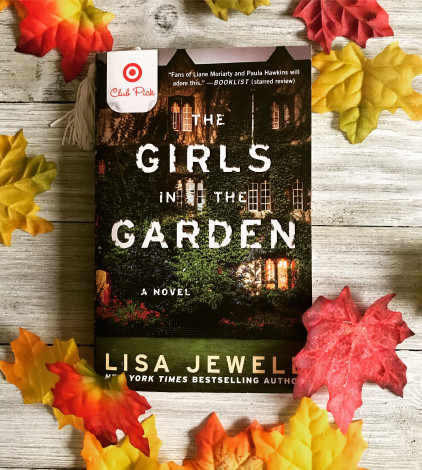 Not the actual moose I saw (I had no camera) but very similar
Not the actual moose I saw (I had no camera) but very similar
As poet Leslie McGrath wrote in selecting my poem “The Pity of It” for the Tiferet Journal 2016 Poetry Award, the poem is “a paean to Robert Frost’s ‘The Most of It.’” But my debt is to more than Frost, and describing that debt is a way of explaining how my own small poetic powers are sometimes transcended through immersion in reading and seeing through the eyes of other writers. For me, this can be a magical process, almost as magical as the human-wild encounters in “The Most of It” and the other poems that echo in mine. I suspect I’m not the only writer who experiences this.
Several years before I had my own encounter with a moose, I was drawn to Frost’s poem “The Most of It” by what poet Molly Peacock wrote in her introduction to the “Passages” section of the Animal Companions, Animal Doctors, Animal People anthology:
“It’s not our own images that help us recognize ourselves, but our visions of other species. As Robert Frost says in my favorite poem about a person’s essential being, “The Most of It,” the spirit that truly recognizes us arrives in animal form. “He thought he kept the universe alone,” Frost begins, yearning for a response to his loneliness, and finds that this response, “instead of proving human” is “a great buck” swimming in a lake, “pushing the crumpled water up ahead” as it emerges on shore and lands “pouring like a waterfall.” He meets himself in the buck.”
Who could resist looking up such a poem? I found it on page 451 of my Complete Poems of Robert Frost (New York, New York: Holt, Rinehart and Winston, 1964) – previously glanced at and, I am ashamed to say, passed over in favor of something a little more relatable, say, “The Oven Bird.” But if it was Molly Peacock’s favorite poem “about a person’s essential being” (one of my favorite subjects, or so I like to think), it was clearly worth an hour or so of quiet reading and re-reading. So I sat in my reading chair and came to see with my own eyes (mind’s eyes) what Frost’s “he” saw:
…the embodiment that crashed
In the cliff’s talus on the other side,
And then in the far distant water splashed,
But after a time allowed for it to swim,
Instead of proving human when it neared
And someone else additional to him,
As a great buck it powerfully appeared,
Pushing the crumpled water up ahead,
And landed pouring like a waterfall,
And stumbled through the rocks with horny tread,
And forced the underbrush—and that was all.
One sentence! One breath, simultaneously held and taken away with the emerging apparition, a form imagined to be human turning into something not at all human, looming, landing – I can almost feel the spray of the waterfall on my face, my shoulders — then stumbling (but with horny tread, a majestic stumble) and disappearing into – no, this creature does not just fade away — forcing the underbrush.
And that was all?! I began to understand what Molly wrote. All? More than enough. But even as I sat with the shadow of that apparition, I knew there were still mysteries in the poem that were beyond me, but perhaps not beyond Randall Jarrell. Jarrell is the critic who in the early 1950’s rescued Frost from his mid-century, cracker-barrel Yankee geniality (“a sort of Olympian Will Rogers out of Tanglewood Tales…neglected or depreciated by intellectuals”) and brought him into the canon as a great poet whose best poems “are extraordinarily subtle and strange, poems which express an attitude that, at its most extreme, makes pessimism seem a hopeful evasion” (“The Other Frost” in Poetry and the Age).
Also in Poetry and the Age is Jarrell’s longer essay on Frost, “To the Laodiceans,” where I found what I was looking for:
“Another impressive unfamiliar poem is “The Most of It,” a poem which indicates as well as any I can think of Frost’s stubborn truthfulness, his willingness to admit both the falseness in the cliché and the falseness in the contradiction of that cliché; if the universe never gives us either a black or white answer, but only a black-and-white one that is somehow not an answer at all, still its inhuman not-answer exceeds any answer that we human beings could have thought of or wished for.”
Its inhuman not-answer exceeds any answer that we humans could have thought of or wished for. Thank you, Randall. Although he wrote in a very different time, long before today’s commonplace acceptance of our kinship and even shared personhood with non-human animals (long before even the need to qualify “animals” or “person”), I think he’s saying something very like what Peacock says. We stand before what is beyond any answer we might have thought of or wished for, but we stand in awe and recognition that makes us more than we were.
I live part-time in western Massachusetts, where over the last twenty years or so wild animals have been returning – wolves, foxes, coyotes, black bears, wildcats, and, depending on who you believe, mountain lions. Thrilling if sometimes unsettling, as you see something low and lithe amble up your driveway at twilight, or a dark crouched figure lope past your bedroom window at teatime.
And then one day I saw, on my own road, my own moose, close enough for – well, for what my poem tells. What was she doing here, south of where she belongs – Canada, Maine, New Hampshire?
Looking for food. And what is she prey to? Ticks – not only here, but also up north, now that it’s warm enough that ticks thrive where it was once far too cold. In epidemic proportions.
I won’t recap the National Geographic and other stories about the devastating effect of ticks on moose (here’s one http://channel.nationalgeographic.com/wild/videos/ticks-can-kill-moose/), but that knowledge was with me as I stood, and the moose stood, on our road, each a witness (or so it felt to me, perhaps not to her) to the other alien being.
Later, wanting to say what I saw, I began to make my own way back through Frost’s poem, as McGrath says, to write what came to be “my paean,” but I needed more than Frost, I needed the courage and the sight and the awe felt by gutsy New England women as well as Frost’s “he.” Women and their moose poems, their joyful encounters with the strange and magical other. I knew I’d read it over the years, in Bishop, Sexton, Kumin.
Most famously in Elizabeth Bishop’s “The Moose” and its “strange sensation of joy,” a long poem ending with this encounter:
—Suddenly the bus driver
stops with a jolt,
turns off his lights.
A moose has come out of
the impenetrable wood
and stands there, looms, rather,
in the middle of the road.
It approaches; it sniffs at
the bus’s hot hood.
Towering, antlerless,
high as a church,
homely as a house
(or, safe as houses).
A man’s voice assures us
“Perfectly harmless….”
Some of the passengers
exclaim in whispers,
childishly, softly,
“Sure are big creatures.”
“It’s awful plain.”
“Look! It’s a she!”
Taking her time,
she looks the bus over,
grand, otherworldly.
Why, why do we feel
(we all feel) this sweet
sensation of joy?
“Curious creatures,”
says our quiet driver,
rolling his r’s.
“Look at that, would you.”
Then he shifts gears.
For a moment longer,
by craning backward,
the moose can be seen
on the moonlit macadam;
then there’s a dim
smell of moose, an acrid
smell of gasoline.
Or “hopelessly alive,” in Anne Sexton’s section “II. Bestiary USA” in 45 Mercy Street
MOOSE
American Archangel you are going –
your body as big as a moving van –
the houses, the highways are turning you in.
Before my house was, you stood there grazing
and before that my grandfather’s home with you
on the wall. Antlers for hat racks
and I felt the rest of your body somewhere outside
the wall merely asking for an invitation.
You stand alone now in a field in Maine,
hopelessly alive,
your antlers like seaweed,
your face like a wolf’s death mask,
your mouth a virgin, your nose a nipple,
your legs muscled up like knitting balls,
your neck mournful as an axe,
and I would like to ask you into my garden
so that I might pack you quickly in salt
and keep your body proud past your mystery
and mine.
And in Maxine Kumin’s “My Elusive Guest”:
Thoreau loved the grayness of them, homespun
with leafy horns like lichen made of bone.
God’s own horses, poor timid creatures, he said
in 1846 in THE MAINE WOODS
and then went on to wonder why they stood
so high at the shoulders, why so long a head,
no tail to speak of. How like the camelopard,
he said, rolling the archaic word
on hit tongue: high before and low behind
and stayed admiring them, upwind.
A hundred years later, the widow Bliss
whose rockbound farm I now inhabit
broomed a moose out of her kitchen garden
thinking it the neighbor’s brown cow
marauding among her vegetables at dawn
then looked up to behold those rabbit
ears, that wet nearsighted eye
that ferny rack of gray on a still-gray sky
and none since. Spring mornings at first light
sometimes through fog some heavy weight
shufts and wavers against the line of trees
and wanting it in my blood, like a spray
of musk, I beckon the elusive guest,
willing it close. My wild thing, my moose.
With all of these poets and pages around me, and the dirt road of my encounter 50 feet or so below the window in my writing room, I stitched my way into and through my own poem, and the experience it reached back for, using Frost’s poem, as Leslie McGrath so aptly noted, for its formal constraint (as Ursula Le Guin says in “Form, Free Verse, Free Form: Some Thoughts,” “My most revealing discovery was that a form can give me a poem.”), but seeing too glimpses of what Bishop, Sexton, Kumin, and through Kumin, Thoreau, saw. A kind of stealing I hope is so obvious as to make its debt, and love, clear – but if it wasn’t before, let it be, now. And of course, the original debt, to what Molly Peacock and her colleague, Randall Jarrell, recognized. My moose? Hardly. My poem?
Here’s “The Most of It” in its entirety.
ROBERT FROST
The Most of ItHe thought he kept the universe alone;
For all the voice in answer he could wake
Was but the mocking echo of his own
From some tree-hidden creek across the lake.
Some morning from the boulder-broken beach
He would cry out on life, that what it wants
Is not its own love back in copy speech,
But counter-love, original response.
And nothing ever came of what he cried
Unless it was the embodiment that crashed
In the cliff’s talus on the other side,
And then in the far-distant water splashed,
But after a time allowed for it to swim,
Instead of proving human when it neared
And someone else additional to him,
As a great buck it powerfully appeared,
Pushing the crumpled water up ahead,
And landed pouring like a waterfall,
And stumbled through the rocks with horny tread,
And forced the underbrush – and that was all.
From his book A Witness Tree, 1942
——————————————
My poem “The Pity of It” is in the 2017 Tiferet Winter issue and reproduced here.
From Judge Leslie McGrath: “Hilde Weisert’s “The Pity of It” is both a paean to Frost’s “The Most of It” and a beautifully restrained portrait of an encounter with another moose as the earth sits on the edge of environmental disaster. The poem’s formal constraints and the speaker’s humility make this poem not just memorable, but haunting.”
About Tiferet Journal: Tiferet is a non-sectarian, non-dogmatic publication and community at the nexus of literature and spirituality. We publish high-quality poetry, prose, and art that further meaningful dialogue about what it is to be humane and conscious in today’s often divisive world.
Share this:




